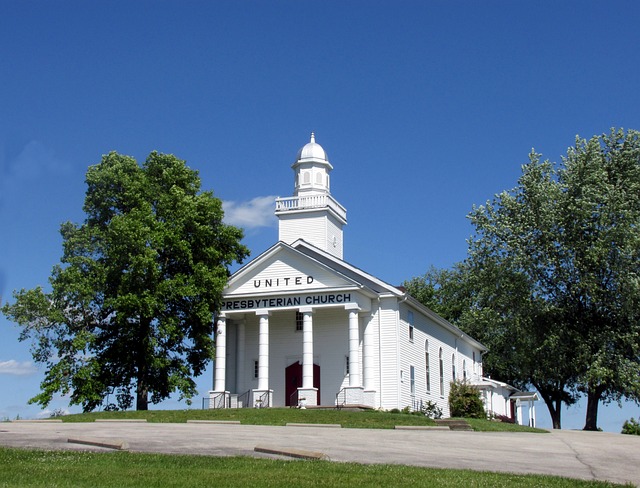The Presbyterian Church is a Protestant Christian denomination that distinguishes itself through its unique beliefs, governance structure, and worship practices.
Table of Contents
History and Origins of the Presbyterian Church
The Presbyterian Church is a Protestant Christian denomination that has a rich history and unique origins. Understanding the history and origins of the Presbyterian Church can help shed light on what makes it different from other Christian denominations.
The roots of the Presbyterian Church can be traced back to the 16th century in Scotland. It was during this time that John Knox, a Scottish minister, played a significant role in shaping the Presbyterian Church. Knox was greatly influenced by the teachings of John Calvin, a French theologian, and his ideas of church governance.
One of the key differences that sets the Presbyterian Church apart is its form of church governance. Presbyterian churches are governed by a system of elders, who are elected by the congregation. These elders, along with the ministers, make up the governing body known as the session. This system of governance ensures that decisions are made collectively and that the voices of the congregation are heard.
Another distinctive feature of the Presbyterian Church is its emphasis on the sovereignty of God. Presbyterians believe that God is in control of all things and that humans are called to submit to His will. This belief is rooted in the teachings of John Calvin, who emphasized the sovereignty of God in his theology. The Presbyterian Church places a strong emphasis on the authority of Scripture and believes that it is the ultimate guide for faith and practice.
The Presbyterian Church also has a strong tradition of education and scholarship. Many Presbyterian churches have historically been associated with colleges and universities, and education has been seen as a way to deepen one’s understanding of faith. This emphasis on education has led to a tradition of well-educated ministers and a commitment to intellectual inquiry within the church.
In addition to its emphasis on education, the Presbyterian Church has a long history of social activism. Presbyterians have been involved in various social justice movements throughout history, including the abolitionist movement and the civil rights movement. This commitment to social justice is rooted in the belief that all people are created in the image of God and deserve to be treated with dignity and respect.
The Presbyterian Church also has a strong sense of community and connection. Congregations are often seen as extended families, and members support and care for one another. This sense of community extends beyond individual congregations, as the Presbyterian Church is part of a larger denomination that is connected through regional and national governing bodies.
In conclusion, the history and origins of the Presbyterian Church have shaped its unique identity. From its form of church governance to its emphasis on the sovereignty of God, the Presbyterian Church stands out among other Christian denominations. Its commitment to education, social justice, and community further distinguish it from other churches. Understanding these distinctives can help us appreciate the Presbyterian Church’s rich history and the values it holds dear.
Key Beliefs and Doctrines of the Presbyterian Church

The Presbyterian Church is a Protestant Christian denomination that has its roots in the Reformation movement of the 16th century. It is known for its unique set of beliefs and doctrines that set it apart from other Christian denominations. In this article, we will explore some of the key beliefs and doctrines of the Presbyterian Church and what makes it different.
One of the central beliefs of the Presbyterian Church is the sovereignty of God. Presbyterians believe that God is the ultimate authority and that everything happens according to His divine plan. This belief is rooted in the idea that God is in control of all things and that nothing happens by chance. It gives Presbyterians a sense of comfort and assurance, knowing that God is always in control, even in the midst of difficult circumstances.
Another important belief of the Presbyterian Church is the authority of Scripture. Presbyterians believe that the Bible is the inspired word of God and the ultimate authority for faith and practice. They believe that the Bible contains all that is necessary for salvation and that it is the guide for living a godly life. This belief in the authority of Scripture shapes the way Presbyterians interpret and apply the teachings of the Bible to their lives.
Presbyterians also hold to the doctrine of justification by faith alone. They believe that salvation is a gift from God that cannot be earned or deserved. Instead, they believe that salvation is received through faith in Jesus Christ alone. This belief is central to the Protestant Reformation and sets Presbyterians apart from other Christian denominations that may place more emphasis on good works or sacraments as a means of salvation.
The Presbyterian Church also has a unique form of church government. It is governed by a system of elders, known as the session, who are elected by the congregation. These elders, along with the pastor, make decisions for the church and provide spiritual leadership. This form of government is based on the belief that all believers are called to participate in the life and ministry of the church, and that decisions should be made collectively, rather than by a single individual.
In addition to these key beliefs and doctrines, the Presbyterian Church also places a strong emphasis on education and the importance of the mind. Presbyterians believe that faith and reason are not mutually exclusive, but rather work together to deepen one’s understanding of God and His truth. They value education and encourage their members to study the Bible and theology in order to grow in their faith.
In conclusion, the Presbyterian Church is unique in its beliefs and doctrines. From its belief in the sovereignty of God and the authority of Scripture, to its emphasis on justification by faith alone and its unique form of church government, the Presbyterian Church offers a distinct perspective on the Christian faith. Whether you are a Presbyterian or simply curious about this denomination, exploring its key beliefs and doctrines can provide a deeper understanding of what makes the Presbyterian Church different.
Structure and Governance of the Presbyterian Church
The Presbyterian Church is known for its unique structure and governance, which sets it apart from other Christian denominations. This article will explore what makes the Presbyterian Church different in terms of its structure and governance.
One of the key aspects that distinguishes the Presbyterian Church is its system of governance. Unlike some other Christian denominations that are hierarchical in nature, with a central authority figure making decisions for the entire church, the Presbyterian Church operates on a system of representative democracy. This means that decisions are made collectively by elected representatives, known as elders, who are chosen by the congregation.
The structure of the Presbyterian Church is based on the belief in the priesthood of all believers. This means that every member of the church has a role to play in its governance and decision-making processes. The congregation elects elders to serve on the session, which is the governing body of the local church. The session is responsible for making decisions on matters such as worship, education, and outreach.
At the regional level, the Presbyterian Church is organized into presbyteries. Presbyteries are made up of representatives from the local churches within a specific geographic area. These representatives, known as teaching elders, along with ruling elders, come together to make decisions on behalf of the presbytery. This system ensures that decisions are made collectively and that the voices of all members are heard.
Above the presbyteries, there are synods, which are regional governing bodies that oversee a group of presbyteries. Synods provide support and resources to the presbyteries and help coordinate the work of the church within a larger geographic area. They also serve as a connection between the local churches and the national level of the church.
At the national level, the Presbyterian Church is governed by the General Assembly. The General Assembly is made up of representatives from each presbytery, as well as other church leaders and representatives from various church agencies. The General Assembly meets annually to make decisions on behalf of the entire denomination. These decisions can range from theological matters to social issues and everything in between.
The structure and governance of the Presbyterian Church ensure that decisions are made in a democratic and inclusive manner. It allows for the voices of all members to be heard and for decisions to be made collectively. This system also provides a checks-and-balances approach, as decisions made at the local level can be reviewed and affirmed or amended at the regional and national levels.
In addition to its unique structure and governance, the Presbyterian Church also places a strong emphasis on the importance of education and theological training. This commitment to education is reflected in the requirements for those seeking to become ordained as ministers in the Presbyterian Church. Candidates for ordination must complete a rigorous course of study, including theological education and practical training.
Overall, the structure and governance of the Presbyterian Church set it apart from other Christian denominations. Its system of representative democracy ensures that decisions are made collectively and that the voices of all members are heard. This commitment to inclusivity and democratic decision-making is a defining characteristic of the Presbyterian Church.
Worship and Sacraments in the Presbyterian Church
The Presbyterian Church is known for its unique approach to worship and sacraments. Unlike some other Christian denominations, the Presbyterian Church places a strong emphasis on the Word of God and the sacraments as means of grace. This article will explore what makes worship and sacraments in the Presbyterian Church different from other churches.
In the Presbyterian Church, worship is centered around the preaching of the Word. The sermon is considered the focal point of the worship service, where the pastor delivers a message based on the Bible. This emphasis on the Word of God reflects the Presbyterian belief in the authority and sufficiency of Scripture. The congregation listens attentively, seeking to understand and apply the teachings of the Bible to their lives.
Another distinctive aspect of worship in the Presbyterian Church is the use of liturgy. Liturgy refers to the order and structure of the worship service. While some churches may have a more spontaneous or free-flowing style of worship, the Presbyterian Church follows a set liturgy that includes prayers, hymns, and responsive readings. This structured approach helps to create a sense of reverence and unity among the congregation.
The sacraments also hold a significant place in the Presbyterian Church. The two sacraments recognized by the Presbyterian Church are baptism and the Lord’s Supper (also known as communion). Baptism is seen as a sign and seal of God’s covenant with His people. It is administered to both infants and adults, symbolizing the washing away of sin and the initiation into the Christian community.
The Lord’s Supper is a central part of worship in the Presbyterian Church. Unlike some denominations that believe in the literal presence of Christ in the bread and wine, Presbyterians view the sacrament as a symbolic remembrance of Christ’s sacrifice. The bread and wine represent the body and blood of Christ, and partaking in communion is a way for believers to remember and proclaim their faith in Him.
In the Presbyterian Church, the sacraments are not seen as mere rituals but as means of grace. They are seen as channels through which God’s grace is communicated to His people. Through baptism and communion, believers are reminded of God’s love, forgiveness, and presence in their lives.
The Presbyterian Church also places a strong emphasis on the priesthood of all believers. This means that every member of the congregation is considered a minister and has a role to play in the worship service. While the pastor may lead the service, the congregation actively participates through prayers, hymns, and readings. This sense of shared responsibility fosters a sense of community and encourages the involvement of all members in the life of the church.
In conclusion, worship and sacraments in the Presbyterian Church are characterized by a strong emphasis on the Word of God, a structured liturgy, and a belief in the sacraments as means of grace. The Presbyterian Church seeks to create a worship experience that is centered on the teachings of the Bible and encourages active participation from all members. By understanding these distinctives, one can gain a deeper appreciation for what makes the Presbyterian Church different in its approach to worship and sacraments.
Conclusion
The Presbyterian Church is different from other Christian denominations due to its unique beliefs and practices. It is characterized by its form of church governance, known as Presbyterian polity, which emphasizes the authority of elected elders and the participation of the congregation in decision-making. Additionally, the Presbyterian Church places a strong emphasis on the sovereignty of God, the authority of Scripture, and the importance of education and intellectual inquiry. These distinct characteristics set the Presbyterian Church apart from other Christian denominations.



